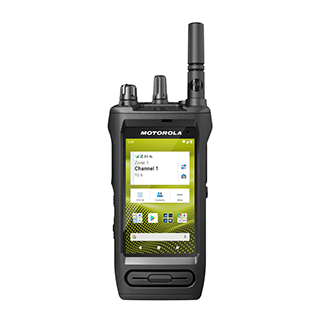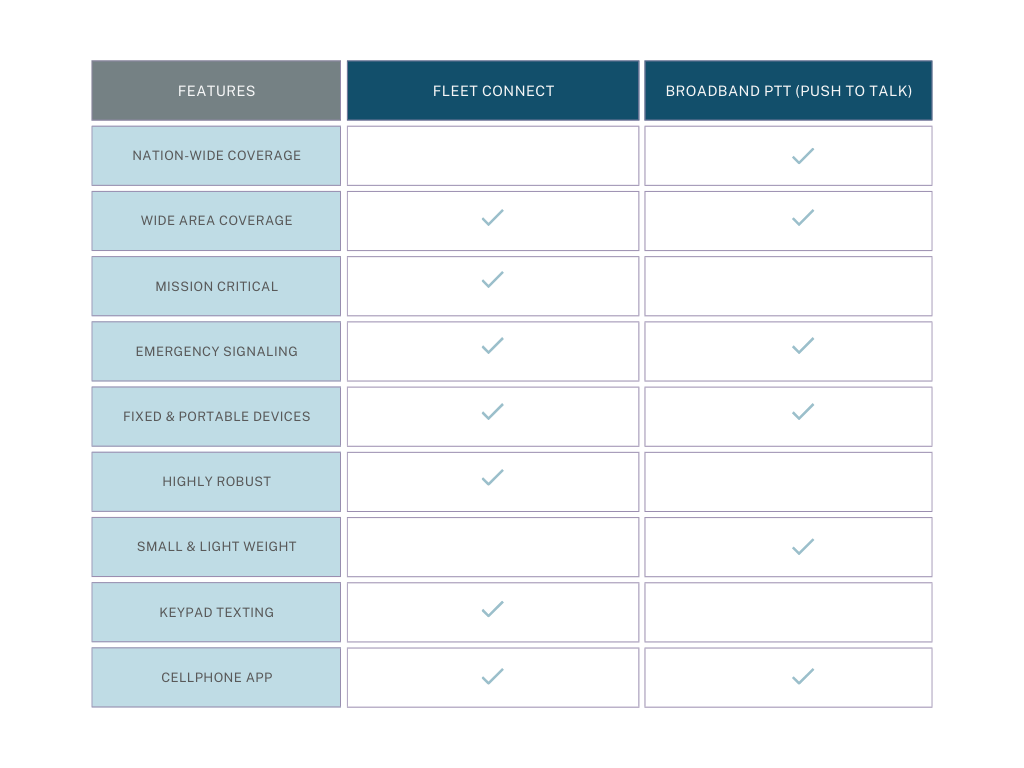Every day, fleet managers face the same frustrating challenges. Deliveries run behind schedule. Vehicles burn fuel in traffic or while idling unnecessarily. Drivers take inefficient routes. And customers grow increasingly impatient with every passing minute. They're problems that hurt your reputation and your bottom line.
GPS fleet tracking is the solution that changes everything. Forget the days of radio check-ins and paper logs. Modern GPS systems deliver real-time location data, comprehensive route analytics, and performance metrics that drive actual results.
Companies implementing this technology typically cut fuel expenses by 10-15%, reduce maintenance costs, and boost driver productivity within the first few months.
Fleet managers can finally stop guessing and calling drivers repeatedly for updates. Instead, they get powerful tools that help them anticipate problems, make data-driven decisions, and maximize fleet performance day after day.
When combined with two-way radio GPS tracking, dispatchers can instantly communicate with drivers while accessing real-time location data – all in one system.
The Evolution of Fleet Management Technology
Remember when managing a fleet meant wall maps, paper logs, and endless phone calls? Drivers would radio in their positions – if they remembered to. Dispatchers tried their best to track vehicle locations with limited information. Customers just had to accept vague delivery windows and frequent delays.
Early GPS systems helped, but they were clunky and expensive. Updates came through every hour or so – better than nothing, but hardly the real-time solution businesses needed. Only the largest companies could afford them, leaving smaller fleets stuck with outdated methods.
Fast forward to today, and everything's changed. Modern GPS tracking provides updates every 30-60 seconds. It doesn't just show vehicle locations – it monitors idle time, tracks fuel usage, records driver behavior, and even helps with preventive maintenance. The technology keeps improving while becoming more affordable for businesses of all sizes.
What's really shifted isn't just the technology – it's customer expectations. People want Amazon-level precision for every delivery or service appointment. They expect narrow arrival windows and immediate updates when things change. Without GPS tracking, meeting these expectations becomes nearly impossible.
Core GPS Fleet Tracking Benefits
Real-time visibility transforms how you manage your fleet. When a customer calls asking where their delivery is, you don't need to make a series of calls to find out. You simply check your screen and see exactly where each vehicle is, how long it's been there, and when it will arrive at its destination. That's power you can feel every day.
Route optimization cuts costs immediately. Why send drivers through heavy traffic or construction zones when better routes exist? Research shows that companies increase operational costs by 10-30% due to poorly planned routes and unnecessary idling. Good GPS systems identify these inefficiencies and suggest alternatives that save time and fuel.
Maintenance management gets smarter with actual usage data instead of calendar-based guesswork. Some vehicles might need service after 3,000 miles, while others can safely go 5,000 miles between oil changes. GPS tracking logs real mileage and engine hours, helping you schedule maintenance when it's truly needed – not too early (wasting money) or too late (risking breakdowns).
Driver behavior monitoring improves safety and reduces costs. When drivers know the system tracks hard braking, rapid acceleration, and speeding, they naturally develop better habits. A logistics company noticed a 30% reduction in accident rates within six months after implementing GPS tracking.
Fuel savings kick in almost immediately. Between reduced idling (a huge fuel waster), more efficient routing, and improved driving habits. Two trucking fleets in Canada saw fuel consumption drop by 18-20%.
Administrative efficiency improves dramatically. No more manual verification of work hours, job completion, or mileage logs. The system captures everything automatically, freeing up your staff to focus on higher-value tasks.
Industry-Specific Applications
Emergency services need speed and precision when lives are on the line. GPS tracking helps dispatchers send the closest available unit to each call, reducing response times by precious minutes. One suburban fire department cut their average response time by 3.5 minutes after implementing GPS across their fleet – a difference that literally saves lives.
Local governments face constant pressure to do more with less. GPS tracking helps municipalities manage snowplows, street sweepers, garbage trucks, and maintenance vehicles more efficiently. It also provides transparency for taxpayer-funded resources. When residents ask why their street hasn't been plowed, supervisors can show exactly where each snowplow has been and when their street will be cleared.
Healthcare providers coordinate complex patient transport schedules with little room for error. Dialysis centers, physical therapy clinics, and home healthcare services rely on GPS tracking to ensure patients get picked up and dropped off on time. For medically vulnerable people, missed appointments aren't just inconvenient – they can be dangerous.
Delivery companies live or die by their reliability. With GPS tracking, dispatchers can see immediately when a driver hits unexpected traffic and adjust other deliveries accordingly. Customers get proactive updates instead of finding out about delays when their package doesn't arrive. That's the difference between keeping and losing accounts in the competitive logistics industry.
Manufacturing facilities depend on precisely timed deliveries to keep production lines running. When materials arrive late, workers and equipment sit idle – often costing thousands per hour. GPS tracking gives plant managers visibility into exactly where incoming shipments are, allowing them to adjust production schedules before small delays become major problems.
Farms operate across vast areas with expensive equipment constantly on the move. GPS tracking helps agricultural managers coordinate harvests, monitor equipment usage, and prevent unauthorized use. It's particularly valuable for preventing theft – a growing concern in rural areas where equipment often sits unattended overnight.
Construction companies juggle multiple job sites with crews and equipment regularly moving between locations. GPS tracking ensures the right resources arrive at the right places on schedule. It also protects against theft and unauthorized use – problems that cost the construction industry millions annually.
School districts use GPS to enhance student safety during transportation. Parents gain peace of mind knowing exactly where their children's buses are. Administrators can verify that drivers follow approved routes and schedules. During weather emergencies, real-time tracking helps with critical decisions about early dismissals and route changes.
Features to Look for in a GPS Fleet Tracking System
Look for GPS systems that refresh vehicle locations at least every minute, a standard feature in MRC Wireless' offerings. This frequent updating gives you the real-time view you need to make quick decisions when problems pop up on the road.
The system should store at least 90 days of trip history. This includes detailed records of stops, idle time, speeds, and routes taken by each vehicle. With three months of data, you can spot patterns that show where improvements could be made – patterns you might never notice just watching day-to-day operations.
Good GPS systems measure things that actually matter to your business. Look for features that track on-time arrivals, how long vehicles idle, driving speeds, and whether drivers stick to planned routes. These concrete measurements make performance reviews more productive and help you see both what's working well and what needs attention.
For businesses that require constant communication, the MOTOTRBO Ion offers built-in GPS functionality, enabling two-way radio GPS tracking. This allows dispatchers to track vehicle locations and communicate with drivers in real time, improving coordination in industries with time-sensitive operations.

Mobile access is a must-have feature in today's world. Fleet managers and dispatchers need the flexibility to monitor operations from anywhere – whether they’re in the office, on-site, or on the move. With the ability to check fleet status from their phones or tablets, they can quickly address issues before small problems turn into costly delays.

Implementation and ROI
Clear communication with your team is crucial when introducing GPS tracking. Many employees initially worry that GPS is just about watching their every move. Successful companies focus instead on explaining how the system helps everyone work more efficiently and safely. Most concerns fade away within a few weeks as people see the actual benefits in their daily work, a transition process that MRC Wireless actively supports through their implementation team.
Start with a small pilot group rather than rolling out to your whole fleet at once. This gives you time to work out any problems and build success stories within your company. This approach creates internal champions who can help convince others of the system's value based on real results, not just promises.
Set clear expectations from the beginning about how the system will be used. When everyone understands what's being measured and why, the GPS becomes a helpful tool rather than a source of stress. The most successful implementations connect tracking metrics to company goals that everyone already understands and supports, a strategy that MRC Wireless helps clients develop during onboarding.
Training should focus on benefits, not just features. Show dispatchers how to use the data to make better decisions, and help drivers see how the system saves them time and frustration. When people understand how the technology makes their jobs easier, they're much more likely to embrace it and use it effectively.
A study by the Aberdeen Group found that companies using GPS fleet tracking experienced a 15% increase in workforce productivity and a 13% reduction in fuel costs. These improvements directly impact your bottom line and often pay for the system many times over.
Transform Your Fleet Operations Today
Identifying your biggest challenges is the first step to choosing a GPS tracking solution that delivers real, measurable results. The right GPS fleet tracking system turns on-time performance from a daily battle into a strategic advantage. While others face traffic delays and vague arrival windows, your business can provide precise ETAs and consistently meet them – boosting customer trust and setting you apart from the competition.
At MRC Wireless, we offer GPS tracking solutions customized to your specific operational needs. Our team can create a customized savings projection based on your fleet size and key challenges, helping you maximize efficiency and reduce costs. Let’s build a smarter, more profitable fleet together – contact us today.

